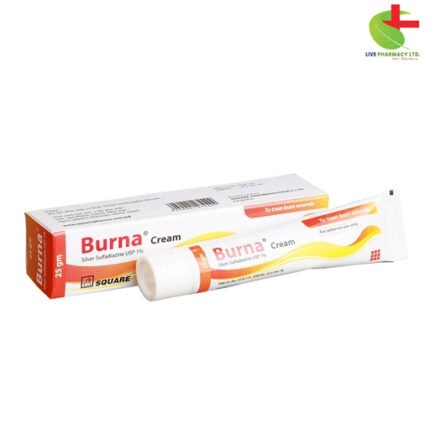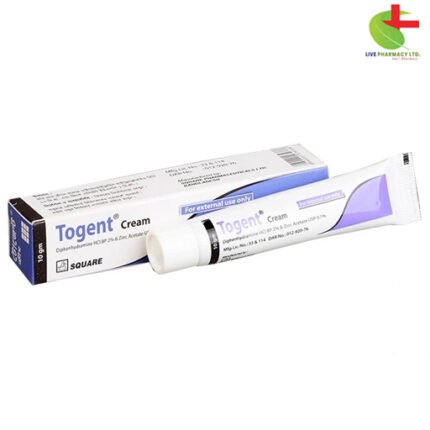Carva 75
8.00৳ Strip
- Explore Carva, a versatile medication addressing various conditions such as pain, inflammation, and fever.
- Trusted for its efficacy in preventing arterial occlusive events and providing relief from mild to moderate pain.
- Proven pharmacological action ensures optimal therapeutic benefits.
- Follow clear dosage guidelines for safe and effective usage.
- Discover quality healthcare solutions with our comprehensive range of medications.
 Brand
Brand
|
Square Pharmaceuticals PLC |
|---|---|
 Generics
Generics
|
Aspirin |
Medical Uses
Carva is prescribed for various medical conditions, including:
- Preventing Arterial Occlusive Events: Carva is recommended for reducing the risk of myocardial infarction, recurring myocardial infarction, post-bypass surgery complications, and acute ischemic stroke or transient ischemic attack (TIA).
- Alleviating Mild to Moderate Pain: Effective in managing headaches, muscle aches, menstrual cramps, toothaches, and similar discomforts.
- Managing Chronic Pain and Inflammation: Carva is beneficial for conditions like osteoarthritis, where pain and inflammation are persistent.
- Fever Reduction: It is also utilized to reduce fever associated with colds and influenza.
Pharmacological Action
By hindering platelet aggregation, Carva, commonly known as Aspirin, prevents the formation of blood clots primarily in the arteries, offering little effect on anticoagulants. It serves as the preferred analgesic for headaches, transient musculoskeletal pain, and menstrual cramps. Additionally, it possesses anti-inflammatory and antipyretic properties, contributing to its therapeutic efficacy. Enteric-coated formulations of Carva help in reducing gastrointestinal irritation and ulceration.
Dosage & Usage Instructions
- For Pain, Inflammatory Conditions, and Fever: The typical dosage comprises 300 mg of Carva, taken as 1 to 3 tablets every six hours, with a maximum daily limit of 4 grams.
- Suspected Acute Coronary Syndrome: Administer 150 mg to 300 mg immediately, unless contraindications are present.
- Post-Myocardial Infarction: A daily dosage of 150 mg of Carva is recommended for one month post-event, followed by long-term use of 75 mg daily.
- After Acute Ischemic Stroke/Transient Ischemic Attack (TIA): Start with 150 mg to 300 mg daily, followed by a maintenance dose of 75 mg daily.
- Following Bypass Surgery: Initiate with 75 mg to 300 mg daily, starting six hours post-procedure.
Interactions
Carva may interact with various medications, enhancing the effects of anticoagulants, oral hypoglycemic agents, phenytoin, and sodium valproate. It inhibits the uricosuric effect of probenecid and can augment the toxicity of sulphonamides. Individuals with asthma may experience bronchospasm or asthma attacks due to Carva.
Contraindications
Avoid Carva in children under 12 years (Reye’s syndrome), breastfeeding mothers, and individuals with active peptic ulcers, bleeding disorders like haemophilia, intracranial hemorrhage, or other ulcerative conditions.
Side Effects
Common side effects of Carva at usual doses include nausea, dyspepsia, gastrointestinal ulceration, and bronchospasm.
Pregnancy & Breastfeeding
Avoid Carva during the last three months of pregnancy, unless specifically instructed by a physician, to prevent potential complications for the unborn child or during delivery. Caution is advised for breastfeeding mothers due to Carva’s presence in breast milk.
Precautions & Warnings
Use Carva cautiously in patients with asthma, uncontrolled hypertension, and during pregnancy. Nasal polyps or nasal allergies warrant careful administration of the medication.
Overdose Effects
Overdosing on Carva may result in symptoms like dizziness, ringing in the ears, sweating, nausea, vomiting, confusion, and hyperventilation. Severe cases may lead to CNS depression, cardiovascular collapse, and respiratory depression. If overdose is suspected, medical observation for at least 24 hours is essential, with treatments such as gastric lavage and forced alkaline diuresis, and possibly hemodialysis in severe cases.
Therapeutic Class
Carva belongs to the therapeutic class of anti-platelet drugs.
Storage Instructions
Store Carva in a cool, dry place away from children and protected from light.













Reviews
There are no reviews yet.